Attending the Common Read Kickoff
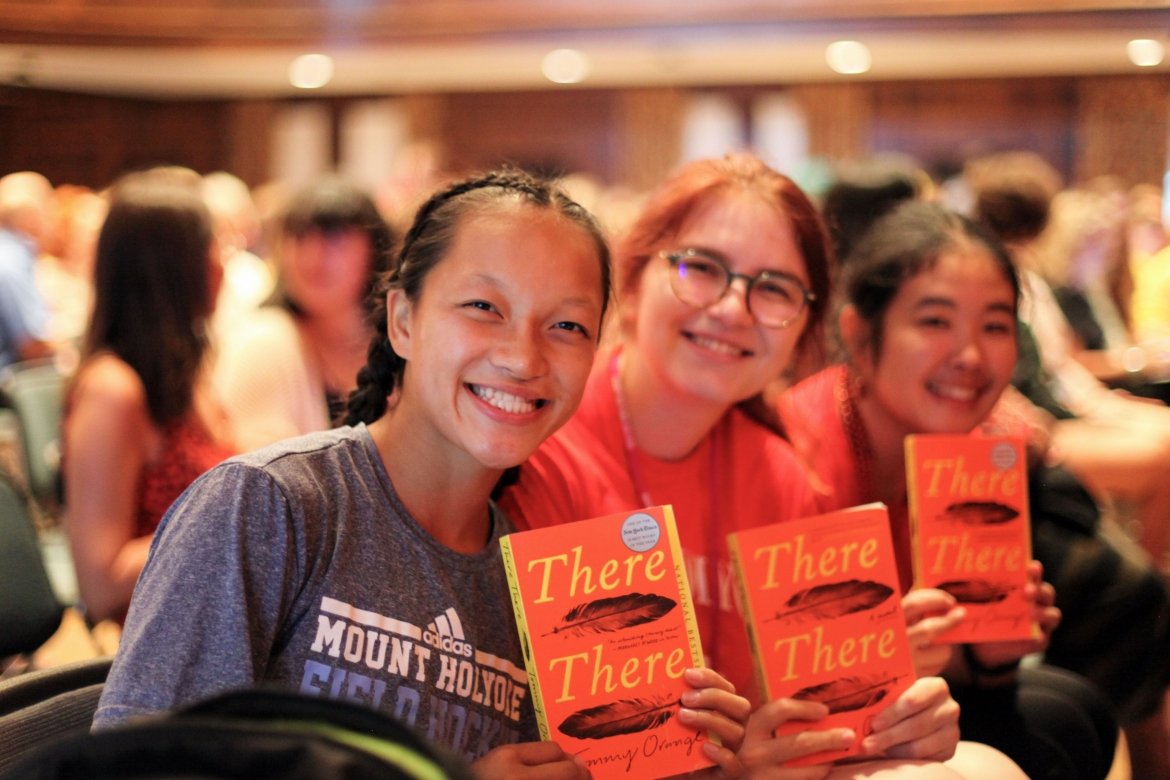
The 2019 Common Read event was an integral part of Mount Holyoke Orientation for the whole community.
Every year, Mount Holyoke College selects a Common Read — a reading that holds relevance to the College community, especially first-year students, as decided by a panel of faculty, staff and students. During the end of Orientation week, new students are invited to a Common Read event to indulge in, to put it formally, their first intellectual discourse based on a shared text.
The 2019 Common Read is “There There” by Tommy Orange, a novel about several individual Native Americans living in Oakland, California, whose paths invariably entwine at an annual powwow. It explores the lives of the “urban Indian that belongs to the city, and the city belongs to the earth.”
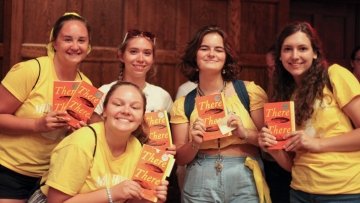
Eagerness was palpable among first-years — still clad in their class color from that morning’s Convocation — as I entered Chapin Auditorium and encountered a deluge of yellow. President Stephens introduced author Tommy Orange, an enrolled member of the Cheyenne and Arapaho Tribes of Oklahoma, as well as Iko Day, associate professor of English and critical social thought at Mount Holyoke College and faculty member in the Five College Asian/Pacific/American Studies Program.
The discussion started with Professor Day acknowledging the first-years, and asking about Orange’s experience in college. Orange narrated an “embarrassing” story about how he was playing a game of hide-and-go seek with his nephew right before his first day at college, during which he jumped unsuccessfully from a large rock. During his first couple of weeks at college, he walked around with a cast on his broken foot and had to explain, with chagrin, what had happened.
As a student myself, it was interesting to hear that what Orange studied in college — sound engineering — provided inspiration for him as a writer. Music plays a big role in his novel: The character Thomas Frank is a drummer who is invited to play at the Big Oakland Powwow, and who calls old Native songs the “sound of pain forgetting itself.” Another character, Edwin Black, despite not learning much about his Native culture growing up, listens to Native songs. And Orville, a young boy in the novel, finds comfort in dancing in his regalia.
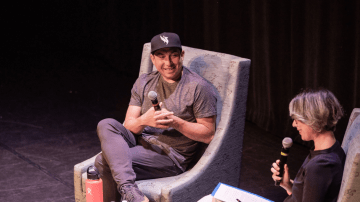
Professor Day then probed Orange for the significance of the title. She referred to the text Orange quotes in his novel, from Gertrude Stein’s “Everybody’s Biography,” which describes Oakland as having “no there there.” Orange joked that Getrude Stein always “wrote about not writing about Oakland.” He then confessed to have not read the entirety of Stein’s book (“Seriously, has anyone made it through Stein?” he quipped), but found her quote about Oakland’s constantly changing landscape applied to Indigenous people to his novel.
Orange explored many complex questions about identity and what it means to be Native American. Does one still identify with being Indian if they are not in touch with their culture, language and traditions? Who decides what it means to be Indian? How do we deal with the erasure of identity that Native Indians have been facing since the Americas were colonized?
Orange asserted that “We cannot put history behind us,” noting that Native Americans and First Nations peoples are suffering from the effects of colonialism to this day. As someone who is from a country that celebrated its independence just 70 years ago, I felt the power of that statement. Is it easy to break free from colonial hangups and oppression?
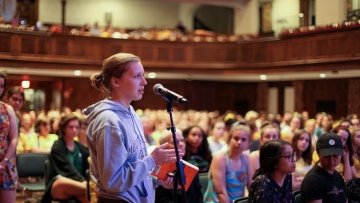
The discussion was followed by insightful audience questions. There were many instances when Orange would pause, take a deep breath and say, “That’s a big question.” It was heartening to see the class of 2023 already embodying the Mount Holyoke spirit of asking tough questions!
One of the most memorable questions came from a student who introduced themself as “probably the only other Indigenous person in the room.” They asked Orange if he knew any solutions for keeping the various Native American and First Nation tribes united. Orange posed a counterquestion: Do the tribes need to be united and have one voice in the first place? They were, after all, considered separate “nations” in the Americas before colonization. He proposed a revised America, one whose map would not have met colonial standards.
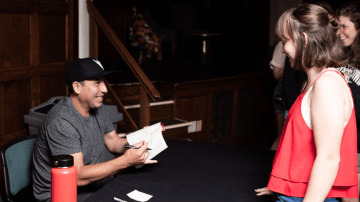
During the well-attended book signing, Orange answered questions individually, taking his time with each student to have a personal and meaningful interaction. He was curious why almost everyone was wearing yellow and wanted to know what Convocation was. He also asked students about their lives and about life at Mount Holyoke.
The 2019 Common Read event — an integral part of Mount Holyoke Orientation — has opened new possibilities and ideas to many different problems concerning race, identity and oppression today.